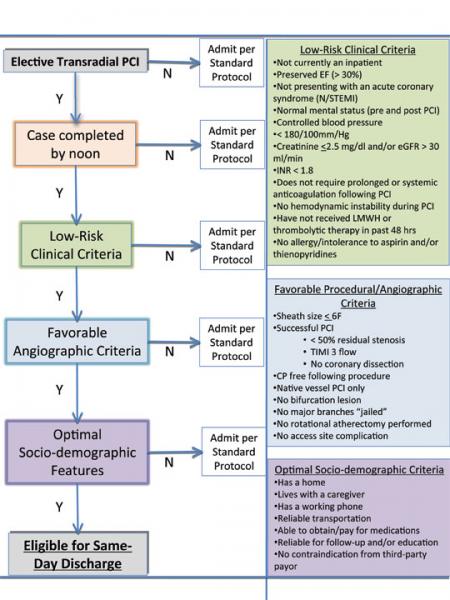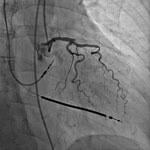Radial access is very popular outside the United States because it offers improved safety, comfort and cost savings over ...
Radial Access
This channel includes news, techniques and new technology innovations for radial access, also called transradial access or radial artery access. This concerns the location of introducer sheaths and vascular access for interventional procedures. Radial access is supported to result in fewer complications compared to femoral access.
St. Joseph's Hospital of Atlanta created a radial access recover room that replaces beds and the sterile institutional ...

With the increased use of transradial cardiac catheterization throughout hospitals across the country, several results ...
Transradial Approach (Left vs. Right) and Procedural Times During Coronary Procedures: TALENT study
Alessandro ...

Radial artery occlusion rate during transradial access procedures is strongly related to sheath and catheter size ...
In January the U.S. Food and Drug Administration (FDA) approved a big modifcation to the CoreValve U.S. pivotal ...

The femoral artery approach for cardiac catheterizations has been used as the gold-standard in the United States, but ...

When it comes to interventional cardiology, increasing diagnostic confidence and reducing exam time are paramount ...
November 16, 2010 – An all-in-one micropuncture radial access kit is now available in the United States. The ...
September 29, 2010 – An agreement was reached between AccessClosure and Benrikal Services for distributing ...
September 28, 2010 – A guiding catheter specifically designed for right radial access to maximize transradial ...
September 16, 2010 – The features of the Infinix-i angiography systems that make the radial access approach more ...
September 10, 2010 – With new tax on medical devices beginning in 2013, a guidewire original equipment ...
July, 29, 2010 – A second generation transradial compression bracelet is designed to obtain a stable compression ...

Outside the United States, transradial artery access is used in 50-90 percent of percutaneous interventions over ...


 March 22, 2011
March 22, 2011





